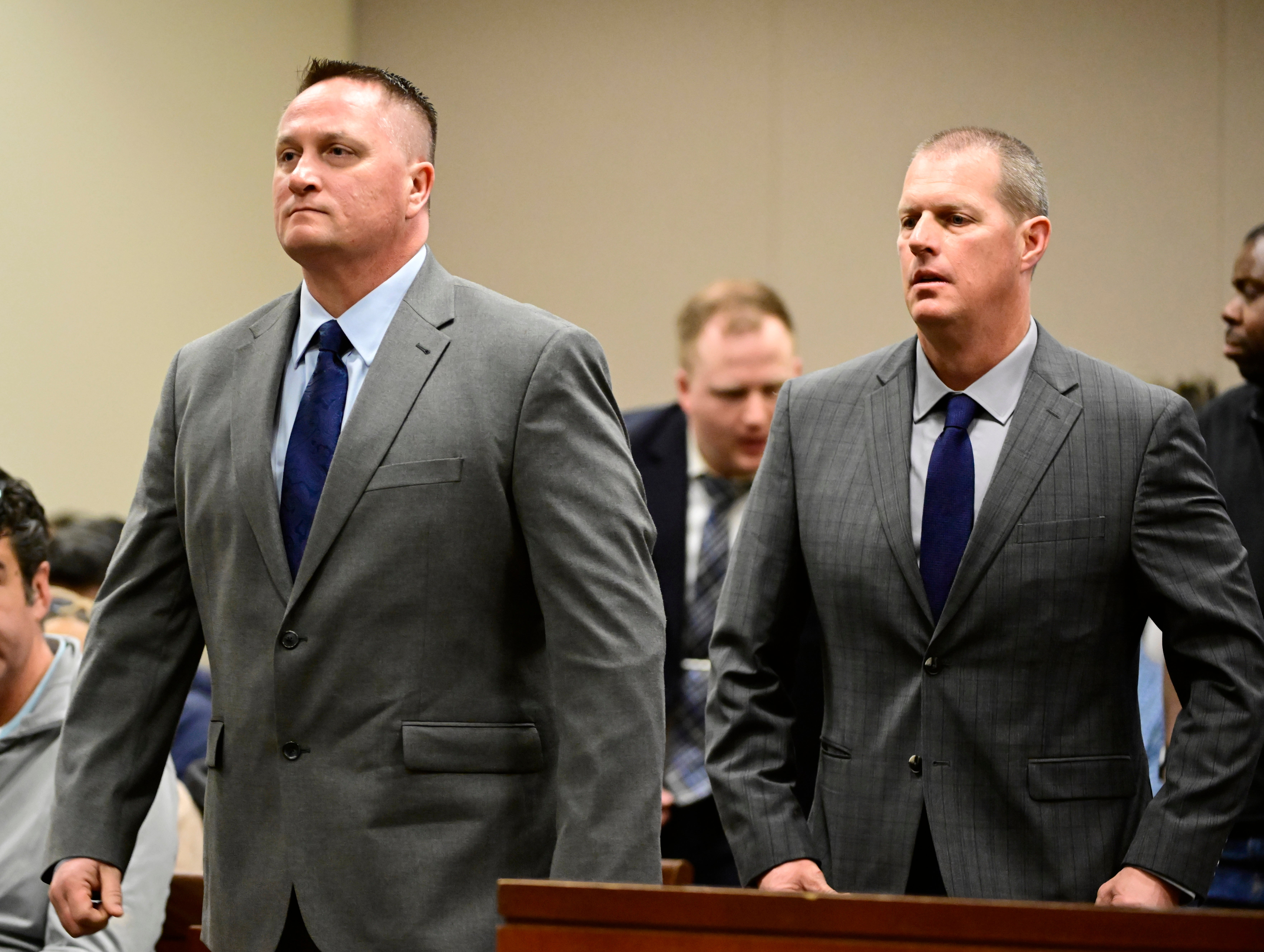Paramedics told investigators that Elijah McClain had 'excited delirium,' a disputed condition
Two paramedics on trial over the 2019 death of Elijah McClain told investigators in videotaped interviews previously unseen in public that the 23-year-old Black man had “excited delirium,” a disputed condition critics say is unscientific and rooted in racism

Two paramedics on trial over the 2019 death of Elijah McClain told investigators in videotaped interviews previously unseen by the public that the 23-year-old Black man had " excited delirium,” a disputed condition that some say is unscientific and rooted in racism.
McClain died after being stopped by police while walking home from a convenience store, then forcibly restrained and injected with ketamine by the paramedics in the Denver suburb of Aurora. Initially no one was charged because the coroner’s office could not determine exactly how McClain died. But social justice protests over the 2020 murder of George Floyd drew renewed attention to McClain’s case — which led to the 2021 indictment of the paramedics and three officers.
Starting in 2018, paramedics in Aurora were trained to use ketamine, a sedative, to treat “excited delirium” after approval from state regulators. Under their training, if they determined that an agitated person they were treating had the condition, which has been described as involving bizarre behavior and a high tolerance for pain, they were told to administer ketamine.
However, critics say such diagnoses have been misused to justify excessive force against suspects. It’s been rejected by some doctor’s groups in the year’s since McClain’s fatal stop and last week, Colorado officials decided that police officers will no longer be trained to look for the condition starting in 2024. Previously, Colorado told paramedics to stop using "excited delirium" as a basis for administering ketamine.
Aurora Fire Department paramedics Jeremy Cooper and Peter Cichuniec told detectives in separate 2019 interviews that prosecutors showed to jurors Wednesday that McClain was actively resisting officers. They also said McClain showed unusual strength, which has been described as a symptom of “excited delirium.”
Cooper alleged McClain tried to get away from the officers, at one point attempting to walk up a grassy area outside an apartment building where he was being held by police. The claim is at odds with body camera footage that shows McClain handcuffed and pinned to the ground by multiple officers before Cooper injected him with ketamine. McClain cannot always be seen on the footage but no attempt to get away was mentioned at the previous trials of three police officers who were also indicted in the deadly stop.
Cichuniec, the senior officer of the medical crew, said it was his decision to give McClain ketamine and that it was the first time he was involved with administering it. He said they were dispatched to help because of a report that a man had been running around in a mask, not making sense and waving his arms at people.
“If you looked in his eyes, no one was home,” he said in the interview, the first comments from the paramedics to be made public since they were charged.
The fatal encounter on Aug. 24, 2019, began when a 911 caller reported that a man looked “sketchy” as he walked down the street wearing a ski mask and raising his hands in the air. However, it now appears that McClain, who was headed home after buying some iced tea, was moving to the music he later told police he was listening too. Prosecutors say surveillance video of him leaving the store shows him dancing as he walked through the parking lot.
The trial is scheduled to continue through most of December, exploring largely uncharted legal territory because it is rare for medical first responders to face criminal charges. However, health concerns could possibly delay proceedings. It was revealed Wednesday that one juror tested positive for COVID-19 using an expired at-home test. The judge planned to ask him to take another test and talk to jurors Thursday about the results before deciding how to proceed.
Bookmark popover
Removed from bookmarks